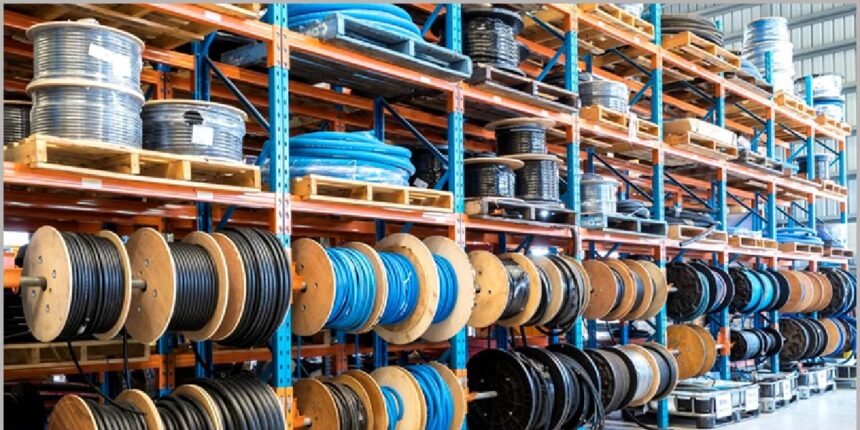Launching a hydraulic hose business can be a successful idea. These hoses are applied in several areas such as construction, farming, mining, as well as manufacturing. Hydraulic hoses are needed in every machine that utilizes the fluid power phenomenon. The demand, therefore, is always high.
This manual will assist you to learn the three major steps to start a hydraulic hose business, even in case you are a novice in this industry.
What Is a Hydraulic Hose Business?
A hydraulic hose company specialises in:
- Hydraulic hose sales
- Provision of a hose assembly and repair
- Sale of Fittings and connectors
- On-site servicing of machinery
- Other companies also extend the services to mobile, whereby the company will repair hoses on machines at the job site.
How to Start Your Business Step-by-Step
- Know the Basics of the Industry
Learn the working principle of hydraulic systems before starting your hydraulic hose business. Learn about:
- Types of hoses (low, medium, high pressure)
- Connectors and adaptors
- Crimping techniques
- Problems with failingGrant, a regular visitor to local Chelsea pubs, still stop short of describing the major areas of this type of failure.
- You can attend short courses or read industry manuals.
- Draw a Business Plan
A business plan is your guidebook. It ought to contain:
- Target market: Construction firms, engineering, farms, and factories
- Start-up costs: Machinery, inventory, equipment, transport.
- Types of services: Warehouse, repair services, mobile repair, build-to-order assemblies
- Pricing strategy: Competitive without compromising
- Marketing strategies: The way to reach the customers
- Financial projection: Anticipated income and cost
It is a good strategy that will assist you in your actions and draw people to your investments or loans.
- Incorporate your Business
Determine a legal entity:
- Sole proprietorship
- Partnership
- Limited Liability Company (LLC)
Search and file your business name and acquire the necessary licenses. Enquire about the permits to do business and tax requirements with your authorities.
- Identify an Appropriate Place
Choose a location where your intended customers can conveniently access. Your requirement may be:
- A store or place to make-up hoses
- A maintenance store space (hoses, fittings, tools, etc.)
- The parking space is in case of providing mobile repair services.
- Certain owners begin on a small scale out of their garage or mobile unit.
- Buy Equipment and Inventory
To get on with it, we shall require a few necessities:
Basic Equipment:
- Crimping hydraulic hose machine
- Cutting tools
- Hose skivers
- Pressure test kits
- Storage shelves and workbenches
Inventory:
- Hydraulic hoses of various types and different dimensions
- Steel and brass fixtures
- Quick adapters and quick couplings
- Safe covers and sleeves
- Purchase from reputable suppliers to guarantee the quality of products.
- Rent and Educate Personnel
You can begin on your own or employ a technician. If hiring:
- You should seek a mechanical or hydraulic experience.
- Safety training and hose assembly training
- Make sure that they are sufficiently knowledgeable about how to operate using crimping tools and standards.
- As well-trained personnel enhance the quality of services and ensure customer confidence.
Marketing Concepts of Your Hose Company
- Establish a site that will display your services.
- Put your company in Google Maps to search locally.
- Print leaflets and go to meet local building sites or farms.
- Hydraulic rubber hose and accessories solutions
- Place advertisements in social media (Facebook, Instagram)
- Provide a discount to the first-time entering customer or a personal referral.
- Enter trade fairs or business events.
- In the partnership with equipment dealers or service centers
- The quicker you grow, the more people know your brand.
The difficulties that you will encounter:
- Expensive startup tools
- Large suppliers competition
- Demand for skilled laborers
- Availability of quality components always
- Inventory control in Illinois
- Flexibility and planning aid you in dealing with such problems.
Laws and Safety
Never neglect the rules of safety of hydraulic systems:
- Put on safety equipment.
- Apply ISO /SAE-certified hoses.
- To inspect the tools regularly
- And moreover, have business insurance to insure your tools and workers.
Legal and Safety Considerations
People are always gonna need hydraulic hoses—these things break, wear out, explode, whatever. And they ain’t cheap either. A solid hose can run you anywhere from twenty bucks to a hundred, easy. And that’s just the part, not even counting the repair work. You go mobile, pull up to a job site at 2 a.m. with your toolbox? You’re printing money. Folks will pay a premium for you to save their bacon in the middle of the night.
Profit Potential
Simple: selling the hoses, charging for repairs, and raking in those sweet call-out fees when someone’s machine decides to blow up during overtime. If you hustle, especially with those round-the-clock emergency gigs, you can watch your income ramp up fast. Some people practically build an empire just by being the ‘guy who answers the phone’ when everyone else is asleep.
Conclusion:
End of the day, yeah, it takes some elbow grease to get started. Gotta know your stuff, buy the right gear, and maybe scrape your knuckles a few times. But if you’re hungry to make a name for yourself in an industry that’s never really gonna slow down, this is a killer move.
Start by learning the ropes, figure out your setup, and go all-in on customer service. Stick with it, and before you know it, you’ll be the person everyone calls when things go sideways. Not a bad spot to be in, honestly.
For More Information Visit Fourmagazine







